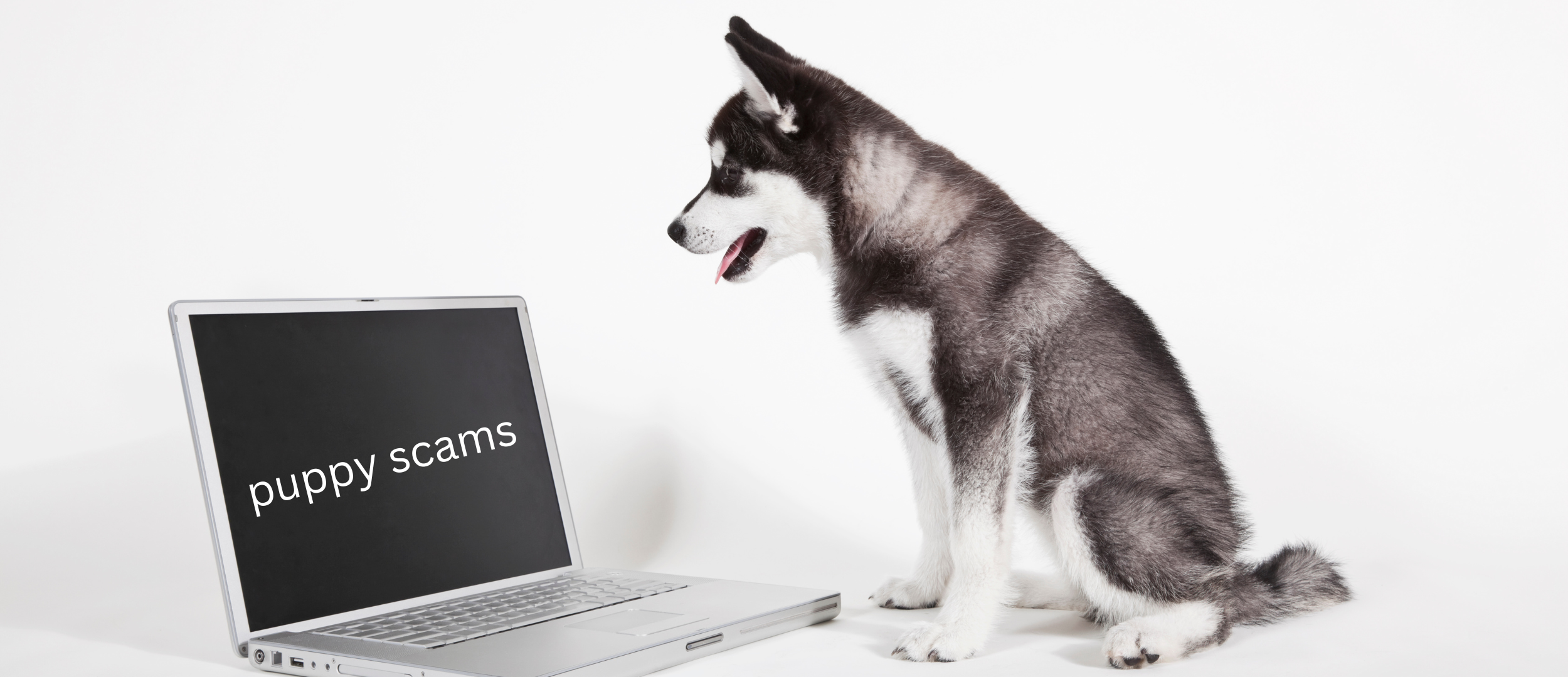Many local breeders will not have a new litter of puppies until the spring, so this forces you to look elsewhere. Most buyers head over to Craigslist, Facebook groups, and other sites for puppies for sale.
The Better Business Bureau says 80 percent of sponsored pet ads are fake and they believe it is among the riskiest purchases you can make. Puppy scams have cost Canadians more than $105,000 since January 2020.
How the Puppy Scams Work
You find a cute puppy on a website or an online ad. Scammers may claim they are breeders. Other times, they act like an upset pet owner who must find a new home for their beloved dog or cat. Once you’ve fallen in love with the pictures and videos, they ask you to wire money to make the purchase.
Once the purchase is done, the “owner” promises your dog or cat will be shipped right away. But there are always problems that were “unexpected”: The airline requires a specific crate, you must pay for an expensive vet visit, or the shipper requires costly pet insurance. Scammers promise that they will refund the unexpected costs as soon as your pet is delivered. Usually, your dog or cat never existed in the first place.
Watch out for:
- Legitimate breeders usually have a permanent website, not just a Facebook page.
- Breeder websites usually list and show individual breeding dogs. Not just the cute picture.
- Check for show titles, health clearances and highlights of a breeding program.
- If a puppy is advertised as “purebred” in Canada, it must be registered by the breeder, not the owner, with the Canadian Kennel Club.
- If you’re asked to pay before you see the animal in person. Pre-paid shipping often results in a scam. It’s best to shop where you can visit the breeder or the place of the dog’s birth.
- Make sure the puppy should come with a veterinarian health check and its first shots and be eight weeks old so that it’s properly weaned.
- Ask for references and make sure you call them.
- Avoid third-party transportation arrangements. It’s better to choose a breeder who lives close enough for you to travel to.
Tip:
Do a reverse image search for the image of the puppy that they show you. Many of these scammers purchase stock photos of the puppy to use or use services such as Canva to search for images. So, you will find the exact same image in multiple places. This is a red flag and indicates that this is a puppy scammer and not a reputable dog breeder.
For more information about Reis Informatica’s cybersecurity services, contact us here and make sure you schedule your Complimentary Christmas Consultation!

